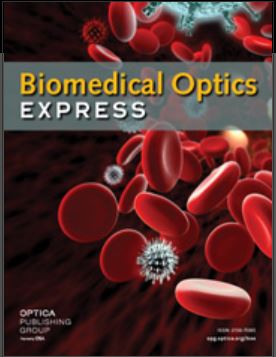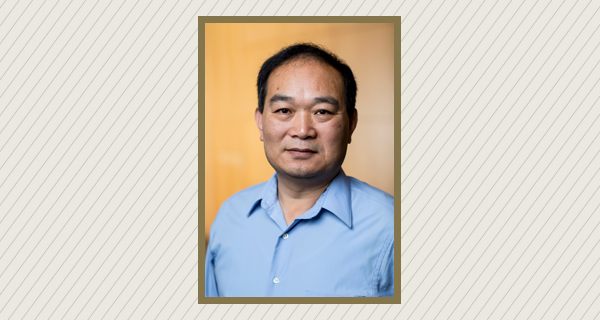 Ruikang (Ricky) Wang, professor of bioengineering and ophthalmology, has been named editor-in-chief of Biomedical Optics Express, effective Jan. 1, 2022, Optica Publishing Group announced in December.
Ruikang (Ricky) Wang, professor of bioengineering and ophthalmology, has been named editor-in-chief of Biomedical Optics Express, effective Jan. 1, 2022, Optica Publishing Group announced in December.
Dr. Wang is the WRF/David and Nancy Auth Innovator of Bioengineering and the Jules and Doris Stein Research to Prevent Blindness Professor of Ophthalmology and directs the Biophotonics and Imaging Laboratory at UW. Dr. Wang’s research group has invented and pioneered a number of clinically useful biomedical imaging techniques for early diagnosis, treatment and management of disease. His research interests include functional optical imaging using coherence gating and confocal gating techniques; photoacoustic imaging; laser-speckle and Doppler imaging; contrast agent development; optical biopsy and functional imaging in tissue engineering; and light propagation in biological tissue.
In 2013, Dr. Wang was elected an Optica Fellow in recognition of his “significant contributions to biomedical optics,” including innovations in 3D imaging of microvasculature and biomechanical properties and for outstanding contributions to Optica (formerly the Optical Society of America).
Dr. Wang previously served as an associate editor on the founding editorial board of Biomedical Optics Express, and he’s been active on program committees for Optica’s Biophotonics Congress.
The open-access Biomedical Optics Express is the principal journal serving the biomedical optics community with peer-reviewed papers related to optics, photonics and optical imaging in biomedicine.
Responding to his appointment, Dr. Wang told Optical Publishing Group: “Biomedical Optics Express has a strong track record of providing high-quality peer review by active researchers with specialized expertise. Few journals can boast such a broad and deep pool of qualified experts who are very invested in the journal. I am excited to have this chance to serve the community and ensure the journal continues to evolve to take full advantage of our rapidly changing field.”



